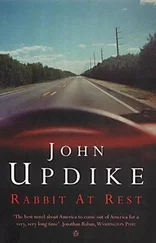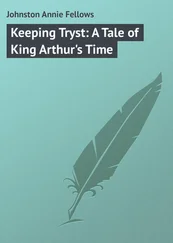Charlie's surprised laugh becomes a snort in his nose. "Dream on, Madman. There's too much energy here for peace and sensible. Contending energies-that's what the Constitution allows for. That's what we get." He shifts in his seat and shakes out a Marlboro. Smoke envelops his face as he squints through the windshield and appears to reflect upon what he has told his young driver. "The next time we're south on Route Nine we ought to swing over to Monmouth Battlefield. The Americans fell back, but stood up to the British well enough to show the French they were worth supporting. And the Spanish and Dutch. All of Europe was out to cut England down to size. Like the U.S. now. It was ironical: Louis Seize spent so much supporting us he taxed the French to the point where they revolted and cut off his head. One revolution led to another. That happens." Charlie exhales heavily and in a graver, surreptitious voice pronounces, as if not sure Ahmad should hear the words, "History isn't something over and done, you know. It's now, too. Revolution never stops. You cut off its head, it grows two."
"The Hydra," Ahmad says, to show he is not completely ignorant. The image recurs in Shaikh Rashid's sermons, in illustration of the futility of America 's crusade against Islam, and was first encountered by Ahmad in watching children's television, the cartoons on Saturday mornings, while his mother slept late. Just he and the television in the living room-the electronic box so frantic and bumptious with the hiccups and pops and crashes and excited high-pitched voices of cartoon adventure, and its audience, the watching child, utterly quiet and still, the sound turned down to let his mother sleep off her date last night. The Hydra was a comic creature, all its heads chattering with each other on their undulating necks.
"These old revolutions," Charlie continues confidentially, "have much to teach our jihad." Ahmad's lack of a response leads tfie other to ask in a quick, testing voice, "You are with the jihad?"
"How could I not be? The Prophet urges it in the Book." Ahmad quotes: "Mohammed is Allah's apostle. Those who follow him are ruthless to the unbelievers but merciful to one another. "
Still, the jihad seems very distant. Delivering modern furniture and collecting furniture that had been modern to its dead owners, he and Charlie ride Excellency through a sweltering morass of pizzerias and nail salons, thrift outlets and gas stations, White Castles and Blimpies. Krispy Kreme and Lovely Laundry, Rims and Tires and 877-TEETH-14, Star-lite Motel and Prime Office Suites, Bank of America and Metro Information Shredding, Testigos de Jehovah and New Christian Tabernacle: signs in a dizzying multitude shout out their potential enhancements of all the lives crammed where once there had been pastures and water-powered factories. The thick-walled, eternity-minded structures of municipal purpose still stood, preserved as museums or apartments or quarters for civic organizations. American flags flew everywhere, some so tattered and faded they had evidently been forgotten on their flagstaffs. The world's hopes had centered here for a time, but the time was past. Ahmad sees through Excellency's high windshield clots of males and females his age gathering in gabbling idleness, idleness with an edge of menace, the brown skins of the females bared by skimpy shorts and tight elastic halters, and the males arrayed in tank tops and grotesquely droopy shorts, earrings and wool skullcaps, clownish jokes they play on themselves.
A kind of terror at the burden of having a life to live hits Ahmad through the dusty windshield glare. These doomed animals gathered in the odor of mating and mischief yet have the comfort of their herded kindred, and each harbors some hope or plan of a future, a job, a destination, an aspiration if only to rise in the ranks of dope dealers or pimps. Whereas he, Ahmad, with abilities that Mr. Levy had told him were ample, has no plan: the God attached to him like an invisible twin, his other self, is a God not of enterprise but of submission. Though he endeavors to pray five times a day, if only in the truck body's rectangular cave with its stacked blankets and packing pads, or in a patch of gravel behind a roadside eating place where he can spread his mat for a cleansing five minutes, the Merciful and Compassionate has illuminated no straight path into a vocation. It is as if in the delicious sleep of his devotion to Allah his future has been amputated. When, in the long lulls of devouring the miles, he confesses his disquiet to Charlie, the usually talkative and well-informed man seems evasive and discomfited.
"Well, in less than three years you'll be getting the Class A CDL and can drive any load-hazmat, trailer rigs-out of state. You'll be making great money."
"But to what end? As you say, to consume consumer goods? To feed and clothe my body that will eventually become decrepit and worthless?"
"That's a way to look at it. 'Life sucks, and then you die.' But doesn't that leave out a lot?"
"What? 'Wife and kids,' as people say?"
"Well, with wife and kids on board, it's true, a lot of these big, meaning-of-it-all existential questions take a back seat."
"You have the wife and kids, and yet you rarely speak of them to me."
"What's to say? I love 'em. And what about love, Madman? Don't you feel it? Like I say, we got to get you laid."
"That is a kind wish on your part, but without marriage it would go against my beliefs."
"Oh, come on. The Prophet himself was no monk. He said a man could have four wives. The girl we'd get you wouldn't be a good Muslim; she'd be a hooker. It wouldn't matter to her and shouldn't matter to you. She'd be a filthy infidel with or without whatever you did to her."
"I do not desire uncleanness."
"Well, what the hell do you desire, Ahmad? Forget fucking, I'm sorry I brought it up. What about just being alive? Breathing the air, seeing the clouds? Doesn't that beat being dead?"
A spatter of sudden summer rain from the sky-cloudless, an overall pewter gray shot through with smothered sunlight-speckles the windshield; at the touch of Ahmad's hand the wipers begin their cumbersome flapping. The one on the driver's side leaves a rainbow arc of unswept moisture, a gap in its rubber blade: he makes a mental note to replace that faulty blade. "It depends," he tells Charlie. "Only the unbelievers fear death absolutely."
"What about daily pleasures? You love life, Madman, don't deny it. Just die way you come to work early every morning, eager to see what's on our schedule. We've had other kids on the truck who didn't see a thing, didn't give a damn, they were dead behind the eyes. All they cared about was stopping at the junk-food chains to eat a ton and take a piss and, when the day was over, going out and getting high with their buddies. You, you got potential."
"I have been told that. But if I love life, as you say, it is as a gift from God that He chose to give, and can choose to take away."
"O.K., then. As God wills. In die meantime, enjoy the ride."
"I am."
"Good boy."
One July day, on the way back to the store, Charlie directs him to swing into Jersey City, through a warehouse region rich in chain-link fences and glittering coils of razor wire and the rusting rails of abandoned freight-car spurs. They proceed past new glass-skinned tall apartment buildings being erected in place of old warehouses, to a park on a point from which the Statue of Liberty and lower Manhattan loom close. The two men-Ahmad in black jeans, Charlie in a loose olive-drab coverall and yellow work boots-attract suspicious glances from older, Christian tourists as they all stand out on a concrete viewing platform. Children who have just been in the domed Liberty Science Center dart in and out and jump on the low iron fence that guards the drop to the river. A breeze and swarms of sparkle like dazzling gnats come in off the Upper Bay. The world-famous statue, copper-green across the water, presents a rather diminished side view at this angle, but lower Manhattan thrusts forward like a magnificently bristling snout. "It's nice," Charlie observes, "to see those towers gone." Ahmad is too busy absorbing the sight to respond; Charlie clarifies, "They were ugly-way out of proportion. They didn't belong."
Читать дальше












